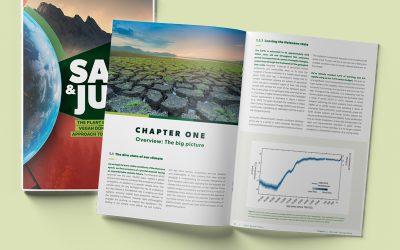Blog
On 31st October the International Monetary Fund (IMF) released a report entitled, ‘How to cut climate emissions’, authored in part by their Principal Environmental Fiscal Policy Expert. The IMF was conceived in July 1944 at a UN conference and sought to build a framework for international economic cooperation to avoid repeating the economic mistakes and currency devaluations that led to economic instability and the Great Depression of the previous decade. Accountable to its member country governments,the IMF’s goal is to achieve sustainable growth and prosperity for all of its 190 member countries by supporting policy that promotes financial stability, increased productivity, job creation and economic well-being. The IMF fosters international financial stability by giving its member countries policy advice, financial advice in the way of loans and other financial assistance and aiding with capacity development through technical assistance and training to help governments implement sound economic policies.
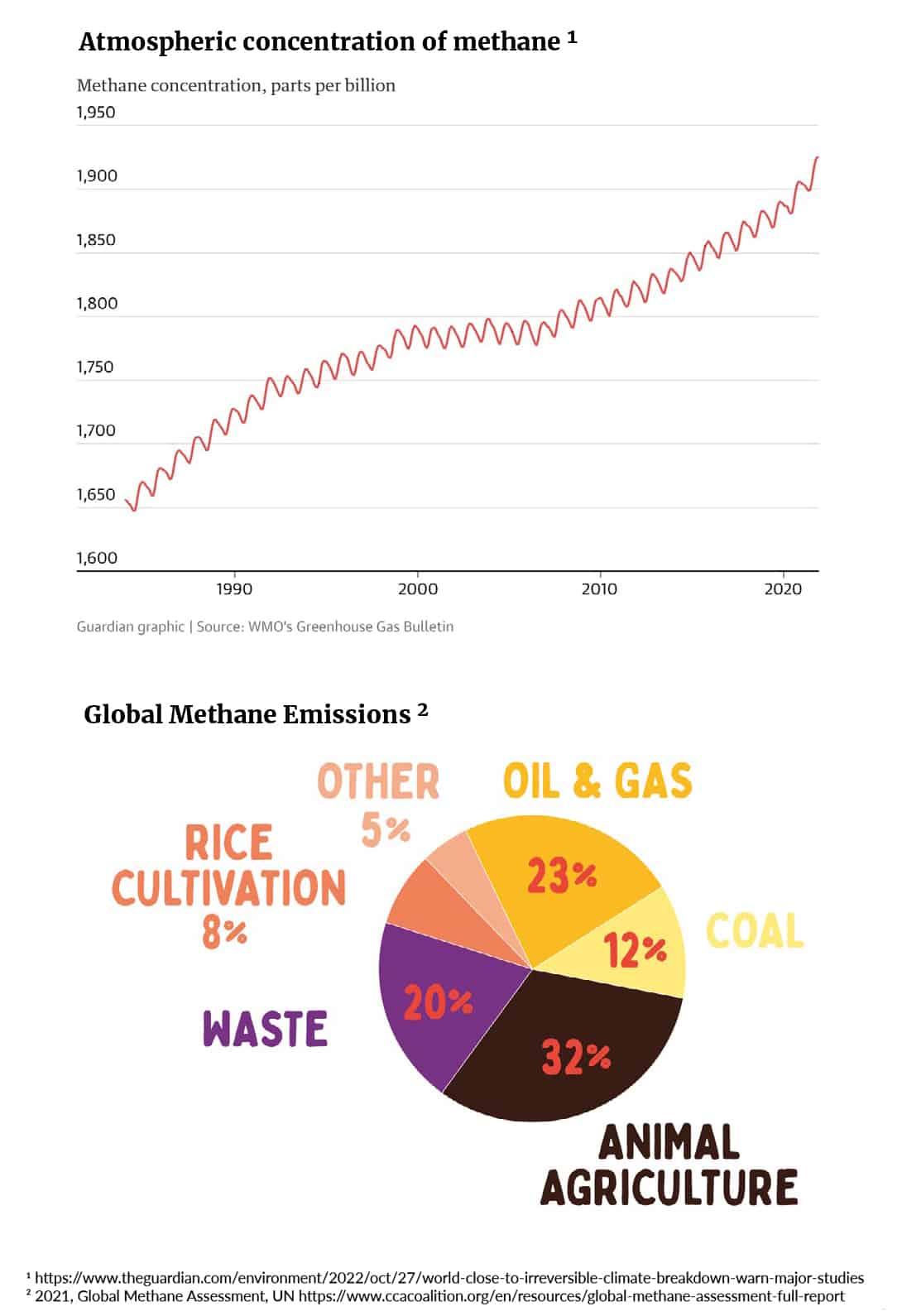
In this latest report, the IMF begins by noting that limiting global warming to 1.5-2 degrees above pre-industrial levels requires rapid cuts in greenhouse gas emissions. This is very concerning, considering that earlier this year, the National Ocean and Atmospheric Administration observed that for a second year in a row, the annual increase in atmospheric levels of methane was at record levels.
Recently countries have pledged to cut global methane emissions by 30% by 2030. However, there has been very little commitment on addressing the impacts of animal agriculture. Recently, 112 countries signed a Global Methane Pledge to cut emissions by 30% by 2030. However, the pledge falls short of the 45% cuts needed; the states that have made pledges represent only about half of human-caused emissions. In addition, the pledge is voluntary and unenforceable and is yet to offer a road map to meet targets. Commitments, let alone policies, fall far short of what is needed.
Redirect: shifting taxes to transition to a plant-based food system
The exception to this is New Zealand, whose government has proposed a world first in taxing the greenhouse gasses that farm animals produce from burping and peeing as part of a plan to tackle climate change. The government has pledged to reduce greenhouse gas emissions and make the country carbon neutral by 2050. Nearly 50% of total greenhouse gas emissions in New Zealand, which declared a climate emergency in 2020, come from agriculture and given the severity of the climate crisis, the proposal makes sense.
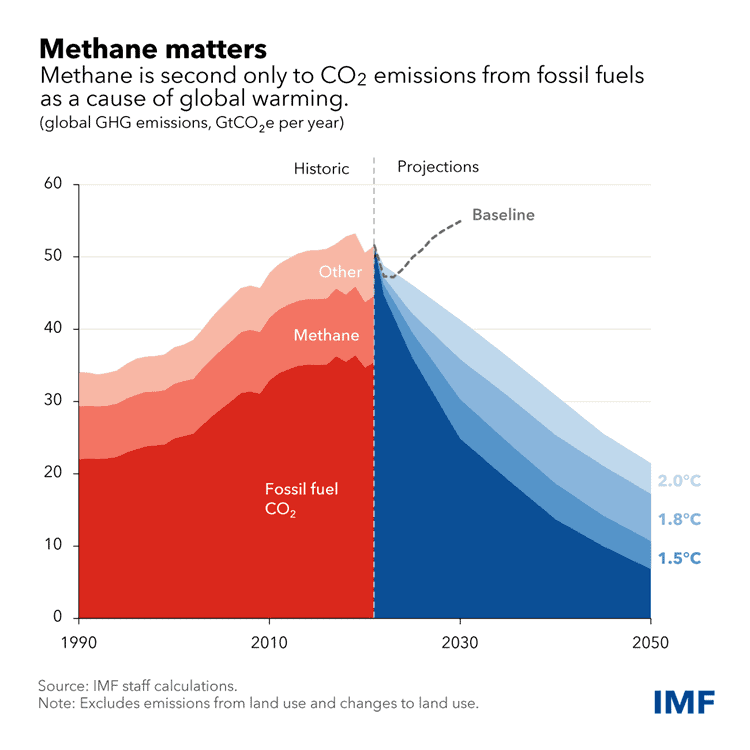
Unsurprisingly, the proposal has seen staunch criticism from the country’s farmers, who have been quick to condemn the proposal. The plan proposes prices for long-lived gasses such as carbon dioxide be set annually based on domestic emission prices for other sectors. The proposal however does not incentivise a shift to plant-based agriculture and instead will provide financial incentives for farmers to use technology to limit sheep and cow burps. The plan includes a commitment to reduce methane emissions from farm animals by 10% by 2030 and by up to 47% by 2050.
The IMF contends that putting a price on methane, ideally through a fee, would reduce emissions efficiently and that a methane tax could be levied directly on emissions. A tax on emissions would go some way to ensuring that countries substantially reduce emissions to keep global temperature targets in reach and limit risks of destabilizing the world’s climate. To date, attention has focused primarily on burning fossil fuels and the CO2 produced as a result, but it is also critical to cut methane emissions. In the short term, methane has a more powerful near-term warming effect than CO2 and as a result, cutting methane emissions would have a more immediate impact on the climate. Methane stays in the atmosphere for around 12 years compared to up to a thousand years for CO2.
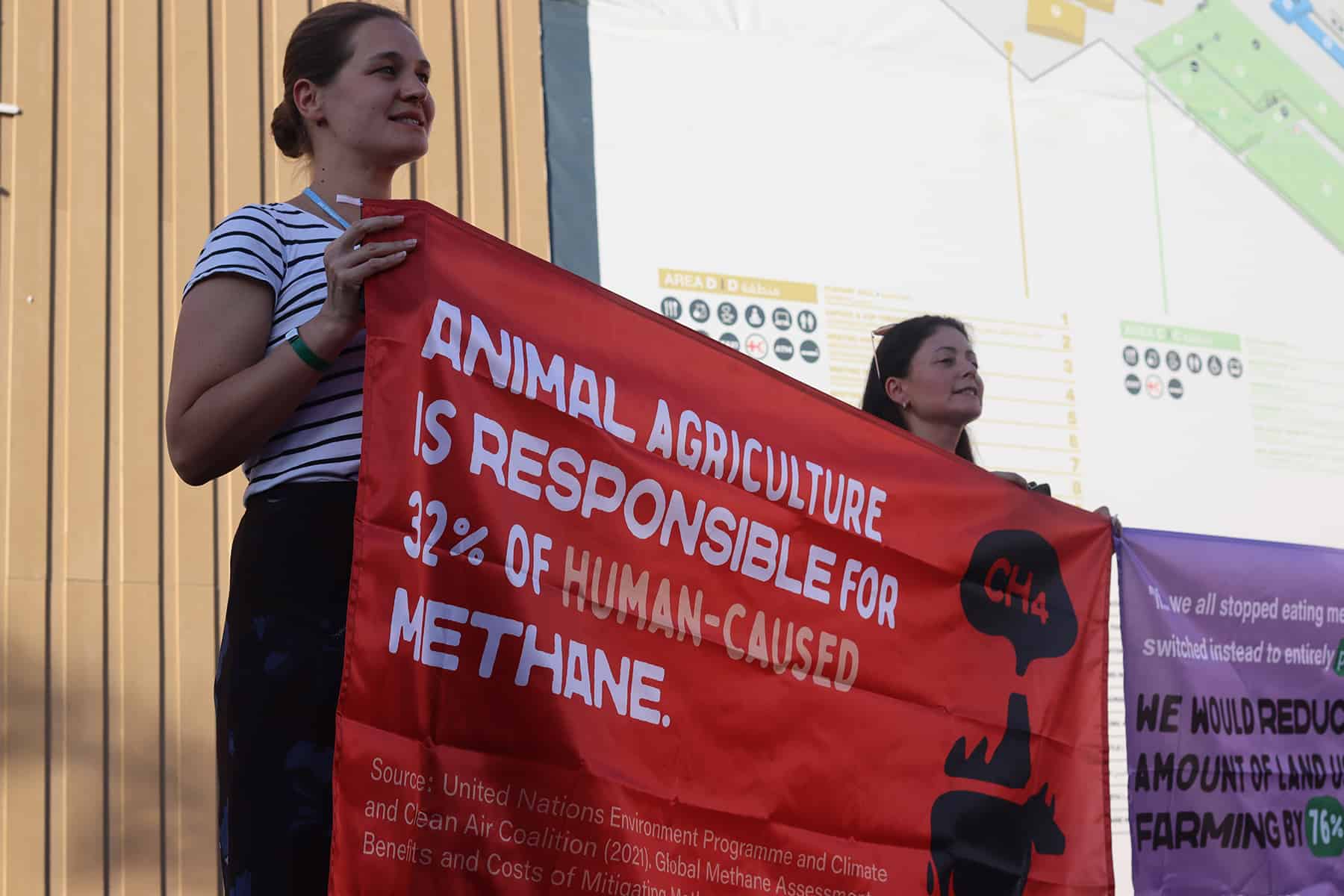
The IMF acknowledges the complexity of the issue, as data, infrastructure, viable alternatives and resources vary from country to country, but suggest that a proxy fee could be applied to methane emissions where data are available on farm-level output or input and default emission factors are available. They suggest that these fees may be feasible when the government already administers business taxes and/or support programs, at least for large producers in the sector with a proposed $70 methane fee among large economies.
This financial incentive to reduce animal farming, while practical for wealthier countries, may be harder to implement for many African or Latin American countries. The IMF goes on to propose that in countries with limited capacity for agriculture, strategies may need to focus on farm and consumer-level incentives such as shifting from animal farming to plant-based food systems. Consumer level incentives to shift from meat to plant-based diets and incentives to farmers rather than a tax may be more applicable for decarbonizing food systems in these situations.
A move to plant-based solutions would have real tangible benefits. Directing resources to speed up a transition to a healthy plant-based food system, along with reductions in food waste and an end to fracking, could deliver the life saving 45% methane cut and allow us to restore carbon sinks to absorb carbon from the atmosphere.
The cow in the room
To date, the cow in the room, animal agriculture, has been noticeably missing from the global conversation about how to achieve this necessary goal of cutting methane by 45%. Animal agriculture is the primary driver of accelerating methane, as well as deforestation, loss of carbon sinks, ocean acidification, and biodiversity loss. In fact, in terms of impacting planetary boundaries, animal agriculture has a more detrimental impact than any other industry.
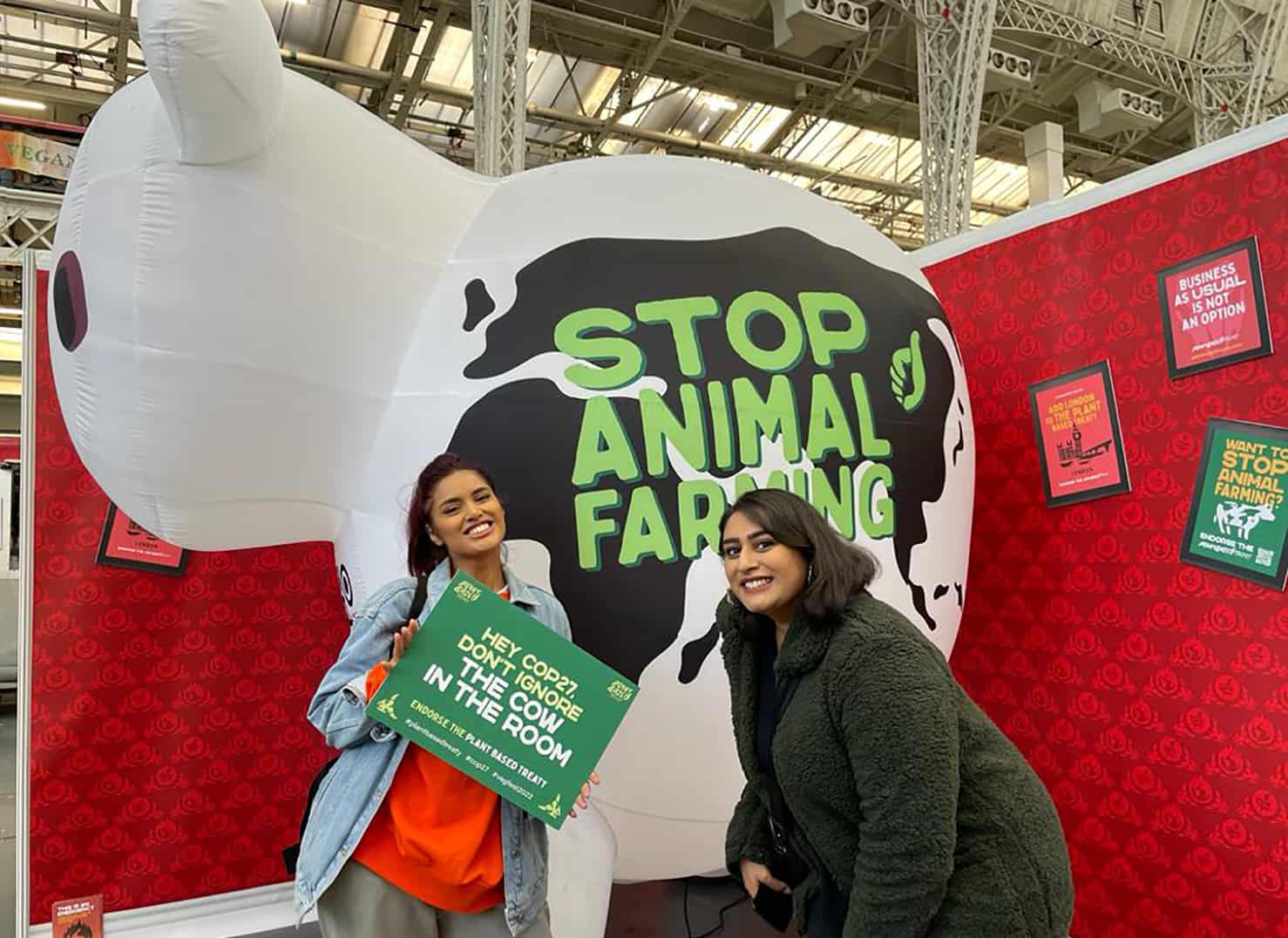
To be clear, methane emissions from agriculture could be drastically reduced if a shift occurred from animal farming to plant-based agriculture. This is because the climate cost of animal farming is astronomical. Just over one-third of the world’s greenhouse gas emissions are produced by the food system. Raising a kilogram of beef protein releases 113 times more greenhouse gasses combined than growing a kilogram of pea protein, and 190 times more than growing a kilogram of nut protein. In fact over one-third of the world’s greenhouse gas emissions are produced by the food system and shifting away from animal agriculture and switching to a plant-based diet would cut the greenhouse gasses from food by 60%
“Regenerative” animal agriculture as a climate solution which some have also proposed is not a solution as it ignores the methane emergency. Animal agriculture causes 32% of human-caused methane emissions. Dr. Peter Carter, IPCC expert reviewer from the Climate Emergency Institute says, “Ethically, all unnecessary methane sources have to be cut as fast and far as feasible. That means global veganization is now a survival imperative.”
Negotiate a Plant Based Treaty now
The Paris Agreement is silent on fossil fuels and animal agriculture. The IPCC itself states in its 6th assessment reports that veganism is the optimal diet for the planet. Durwood Zaelke, IPCC lead reviewer and president of the Institute for Governance and Sustainable Development states that “Cutting methane is our best and probably last hope to keep the planet safe.”
We need a Plant Based Treaty that focuses on three core principles: Relinquish the expansion of animal agriculture; Redirect policies such as subsidies, taxes and public information campaigns towards favoring a plant-based food system; Restore ecosystems and reforest the Earth. We need to stop stalling before we “eat our way to extinction.” Instead, we must face the inconvenient truth and begin global negotiations to provide a worldwide transition to a plant-based economy as a companion to the Paris Climate Agreement.
We must address the cow in the room: the methane emergency.
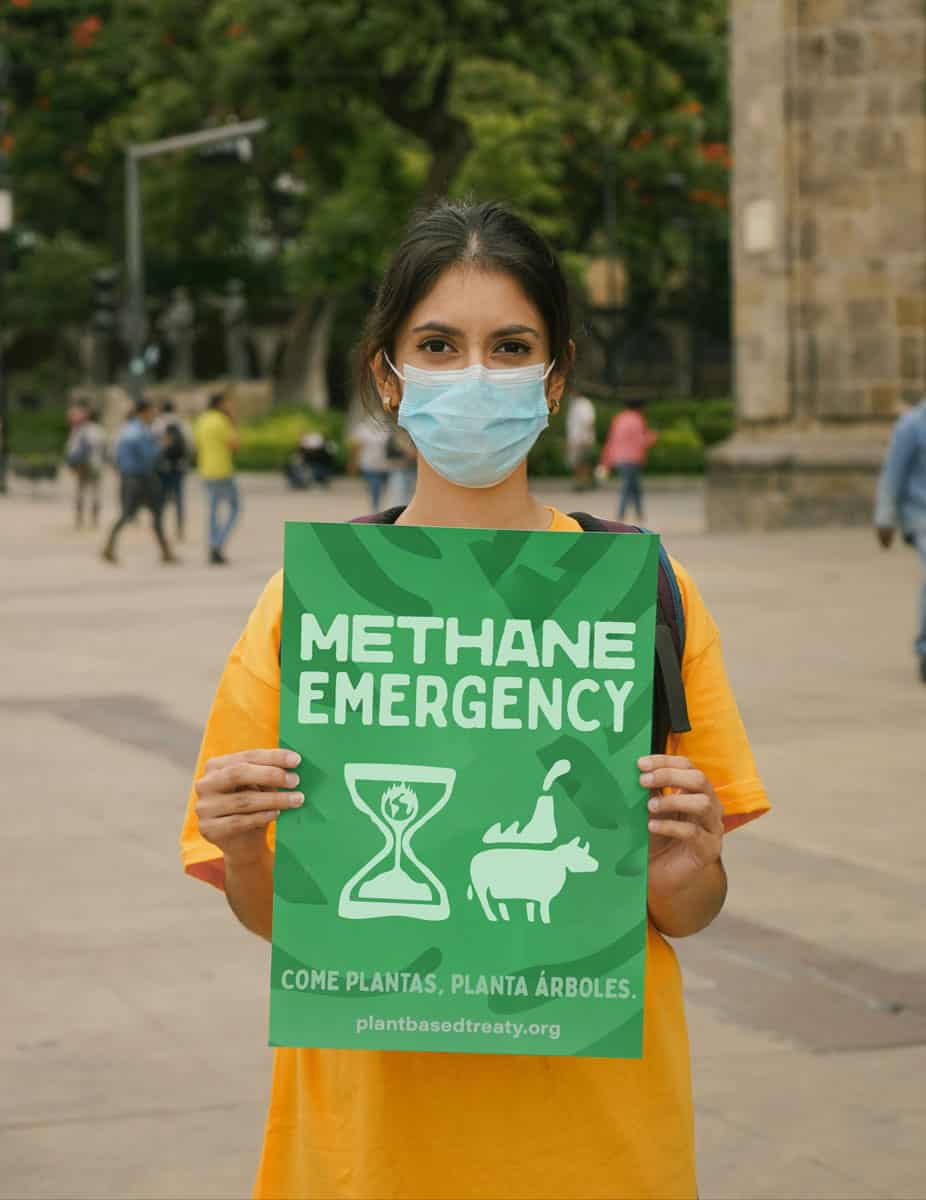
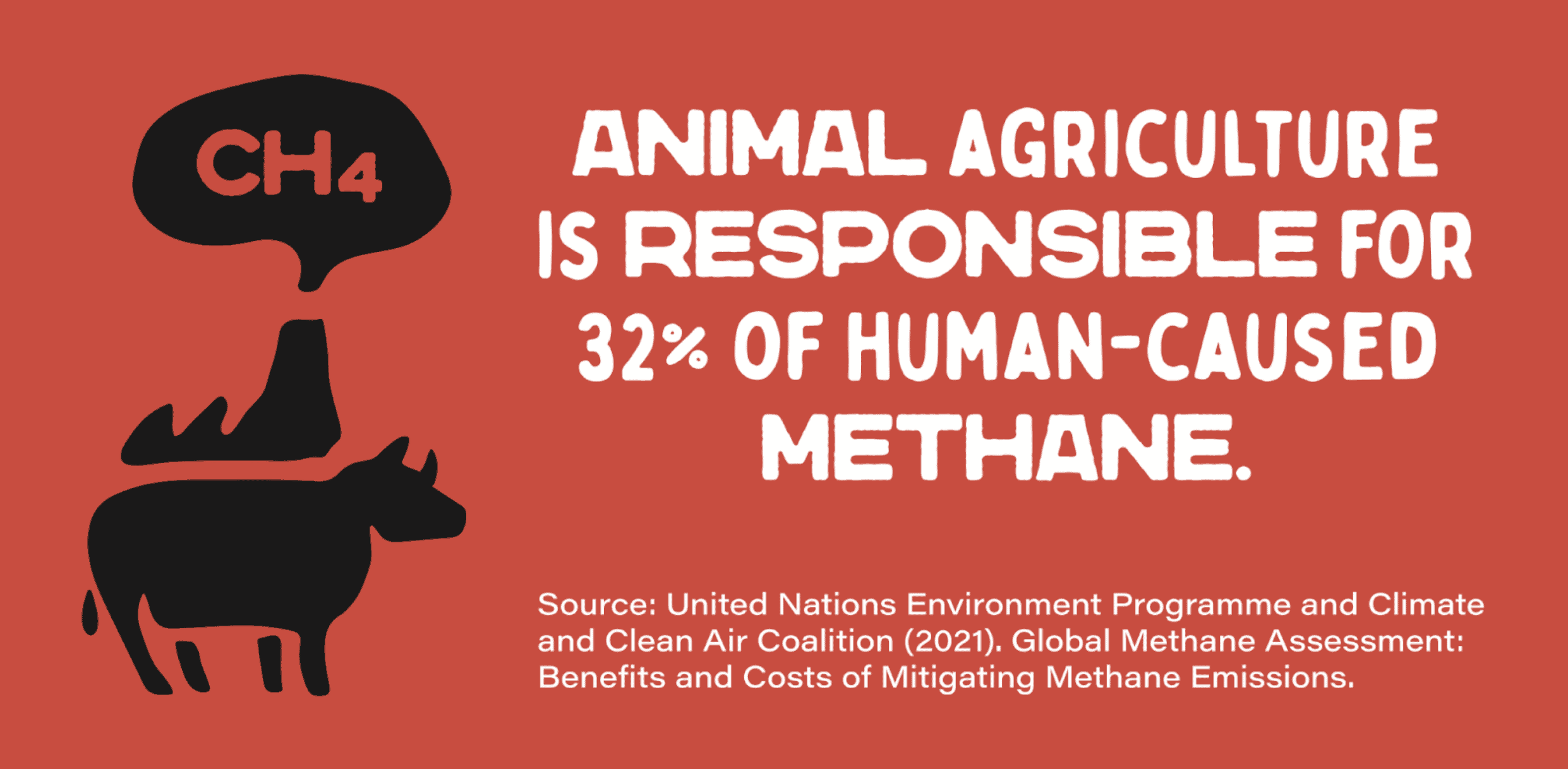

James O’Toole is a director of communications covering media relations, petitions, newsletters and celebrity activism. Previously James worked in the finance industry as a stockbroker and wrote market commentary.

James O’Toole is a director of communications covering media relations, petitions, newsletters and celebrity activism. Previously James worked in the finance industry as a stockbroker and wrote market commentary.
More from the blog
6 Important Calls To Action From The Safe And Just Report – Part One
By Miriam Porter
Grow Your Own Kale And Spinach For Healthy Green Smoothies
By Miriam Porter
The Importance Of Exercise And Tips On Building Muscle
By Miriam Porter

